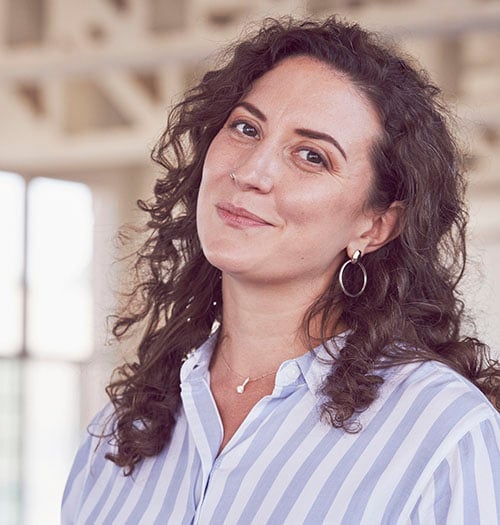While most people know their lifestyle behaviors impact physical and mental health, many individuals and groups struggle to meet basic recommendations for movement, healthful nutrition, proper rest and sleep, and stress management.
Qualified coaches can be a powerful support system for change. With so many different types of coaching, including wellness coaching, interested professionals may be unsure what kind of coaching is right for them. Health coaching is one way a practitioner can support their clients in making sustainable, healthful change.
Here, we break down what it means to be a health coach in today’s wellness-focused world.
What is a Health Coach?
A health coach is a supportive and qualified professional who helps others make self-directed change. Coaches share information that helps their clients make informed decisions, then use communication techniques to prompt productive introspection.
Typically, a health coach works with someone who has been diagnosed with or is predisposed to a health or medical condition. The coach supports their client in lifestyle changes that have been shown to improve their overall physical health.
For example, someone who has been recently diagnosed with an elevated A1C, the hormone that indicates diabetes, will be told by their doctor to change their diet, movement, and stress management habits. This can be overwhelming for that individual, and a health coach can support them in how to make sustainable changes that benefit their health.
Coaches support self-directed change, which is different from a doctor or other health care provider who traditionally tells patients exactly what do to. According to a survey of over 4,000 Americans, more than 30% of respondents disagreed with or didn’t understand advice from their doctors, meaning they are unlikely to follow that guidance (Vogel, 2019).
Health coaches can be a valuable resource not only for telling clients what habits will be healthy but in helping them understand how their behavior affects health. A qualified coach is educated in motivation, self-directed change, and in lifestyle domains that affect health like nutrition, sleep, the effects of substance use like smoking, and physical activity.
What Can a Health Coach Do?
A health coach’s primary role is to support others to make a sustainable, self-directed change. That overall mission can show up in many jobs. Health coaches can work with clients one-on-one or in a group setting.
They can work for an agency, insurance company, health provider, or independently. Some health coaches teach workshops within healthcare providers, such as a doctor’s office, hospital, or clinic. Others might work within large companies that have wellness programs and support other employees’ sustainable healthy behavior change.
Employment opportunities for health coaches continue to evolve, and in recent years new opportunities have emerged, such as pharmacies that employ health coaches to support customers in making sustainable changes.
Want to know more about how to become a health and wellness coach? Look into our Certified Wellness Coach course!
Why is Health Coaching Important?
Behavior change is notoriously difficult and the majority of efforts at lifestyle change falter. At the same time, diseases that are preventable through lifestyle change account for most deaths in the United States.
Cardiovascular disease, type 2 diabetes, and cancer account for over two-thirds of American deaths each year (Eyre et al., 2004). In a study of over 395,000 participants published in 2016, only 6% of participants did regular activity, didn’t smoke, rarely drank, ate a healthful diet, and got adequate sleep most nights (Liu et al., 2016).
Working with a coach focused on lifestyle change has been shown to improve health indicators including blood pressure, cholesterol, fasting glucose, and cardiovascular health (Gordon et al., 2017). That’s because while most people know what healthful habits to change, they may not know how to weave new habits into their lifestyle.
By fostering a self-directed approach, coaches empower clients to make incremental, doable changes that feel less intimidating and overwhelming. Over time, these changes impact individuals, families, and their communities.
What’s the difference between a Health Coach and a Wellness Coach?
Qualified coaches work within a scope of practice defined by their unique experience and qualifications. Clearly communicating the type of coaching you offer ensures clients receive ethical support as well as provides clarity within your marketing and approach. Understanding the difference between health coaching and wellness coaching can allow you to make an informed choice about your career.
- A Health Coach works with individuals who have a medical diagnosis, health condition, or predisposition that’s preventable through lifestyle change. A health coach helps the client implement lifestyle changes related to the management or care of their health as part of the client’s care team.
- Wellness Coaches support clients in the ongoing process of building wellness through movement, nutrition, sleep, recovery and regeneration, and stress management with a focus on their holistic lifestyle choices. This may include those with chronic health conditions, or those looking to be more generally well.
| Wellness Coach | Health Coach |
| - Focus on the ongoing process of a client’s overall wellness. | - Focus on the client’s health outcomes. Typically relates to physical health status. |
| - Works with the general population on improving overall wellness. May have a group they choose to focus on. | - Health coach works with individuals who’ve had a medical diagnosis that involves lifestyle changes to mitigate or treat. |
| - Client chooses what areas of wellness to focus on as part of their wellness journey. | - Changes being made may be prescribed by a physician as part of the client’s ongoing treatment plan. |
Summary
As a practitioner, choosing what kind of coaching calls to you can be an important decision on your coaching journey. All coaches support clients in making sustainable, positive, self-directed change. Health coaches specifically work with people with health complications who want to find more balance.
References
Eyre, H., Kahn, R., Robertson, R. M., ACS/ADA/AHA Collaborative Writing Committee, ACS/ADA/AHA Collaborative Writing Committee Members, Clark, N. G., ... & Thun, M. J. (2004). Preventing cancer, cardiovascular disease, and diabetes: a common agenda for the American Cancer Society, the American Diabetes Association, and the American Heart Association. Circulation, 109(25), 3244-3255.
Gordon, N. F., Salmon, R. D., Wright, B. S., Faircloth, G. C., Reid, K. S., & Gordon, T. L. (2017). Clinical effectiveness of lifestyle health coaching: case study of an evidence-based program. American journal of lifestyle medicine, 11(2), 153-166.
Liu, Y., Croft, J. B., Wheaton, A. G., Kanny, D., Cunningham, T. J., Lu, H., ... & Giles, W. H. (2016). Peer reviewed: Clustering of five health-related behaviors for chronic disease prevention among adults, United States, 2013. Preventing chronic disease, 13.
Vogel, L. (2019). Why do patients often lie to their doctors?. Canadian Medical Association.

















